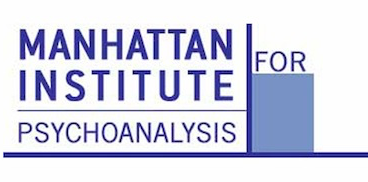On the day it was posted, #MeToo was used more than 100,000 times and retweeted more than 17,000 times in 24 hours.
In this thoughtful and timely post, Sandra L. Green, LCSW, SEP, responds to the phenomenon and its effects on trauma survivors. Why this? she wonders. Why now?
Since the recent cascade of accusations of sexual impropriety were waged against film producer Harvey Weinstein, the Twitter hashtag #MeToo (begun by Alyssa Milano) has gone viral. It has also entered the consulting room.
Many of my patients these past few weeks have recounted their own experiences of sexual assault to me, sometimes for the first time, and sometimes once again. In many instances, an altered measure of certainty, boldness, and strength seems to accent their narratives.
What is happening with what an October 26, 2017, online CNN report called, “the biggest national conversation on sexual harassment since the Anita Hill-Clarence Thomas battle”? What might be stimulating the increased confidence for making disclosures? As we therapists often ask, why now?
One patient, the victim of incestuous rape at age 13, was, for the first time in her life, able to access some anger at her rapist and to consequently feel a bit of compassion for her younger self (marking a decreased identification with her aggressor).
Another patient, a man working as a freelance actor, found himself feeling endangered despite the fact that his male boss had never been sexually inappropriate. His sense of peril became so acute that he suddenly felt in need of immediate protection, without a clear link to any current threat. As we explored this heightened anxiety, memories of sexual abuse that occurred repeatedly in his late childhood emerged – memories always known by him, but never previously formulated as influencing his chronic anxiety or unsettled sexual life.
Of course, not everyone I’ve spoken with feels emboldened or comforted by the invitation to publicize their abuse history. For example, two of my patients, both of whom had been quite seriously and violently sexually assaulted, expressed antipathy towards #MeToo, each voicing disdain for what they perceived as a minimization of the more severe ramifications of sexual victimization – the appearance of a loose equation between, say, a transient unwanted touch and violent or ongoing assault.
Several other patients initially decried #MeToo as encouraging mob mentality, a kind of witch hunt. These objections were based on the view that the hashtag phenomenon encouraged facile or specious disclosures and accusations; behaviors with which they did not wish to be associated. Still, in the wake of the Weinstein (et al.) chronicles, conflicts and questions regarding the purpose and meaning of disclosing abuse have become particularly poignant for some patients, especially those who have never revealed these pivotal experiences to the significant people in their lives.
In all of these ways, the turbulent external controversy surrounding #MeToo has reached into and affected the inner worlds of these trauma survivors.
*
So, why now? Perhaps it is the case that disclosures by famous actresses, such as Gwyneth Paltrow and Ashley Judd, are registered as being more credible and therefore more legitimizing than similar allegations made by average or “random” women. Maybe “We the People,” as inadvertent witnesses of such a high concentration of scandalous and repulsive exposés (Cosby, Ailes, O’Reilly, Trump, etc.), have reached a critical mass, a threshold of disturbance that exceeds the collective capacity for indifference and denial.
Certainly, the use of social media as a podium from which one can publicly malign others has been effectually ratified by the current president’s persistent, debasing Tweets. That the barrel of this very medium should now point in the opposite direction, giving the adversaries a dose of their own medicine, does seem fitting. In this way, the Internet can function as the town square once did.
It is easy for me to imagine the intense satisfaction enjoyed by many #MeToo participants and to recognize the exhilaration of being part of an enormous group of fellow victims joining together in rancorous protest. By supplying power in numbers, #MeToo offers instant membership in what may be seen as an emerging and potentially persuasive political movement. The e-platform grants consent to voice one’s outrage, indignation, pain, and loathing to a supportive, albeit anonymous, virtual community. By providing these incentives, fears of inevitable defeat and feelings of powerlessness and shame can be undercut; self-blame, reduced; and pride in being believed by others, readily secured.
The farther-reaching implications of the massive response to the trio of hashtags #MeToo, #BelieveYou, and #NotOkay remain uncertain. But I choose to believe that the time for change is ripe, and that this magnitude of passionate dissent will have sticking power long after the current “virus” recedes.
Sandra L. Green, LCSW, SEP, is executive director, faculty, and clinical consultant for the Certificate Program in Trauma Studies at the Manhattan Institute for Psychoanalysis, where she is also a training analyst and member of the psychoanalytic teaching and supervisory Faculty. Sandra teaches advanced courses on trauma at a number of other distinguished institutes, and runs consultation and study groups in her private practice.








3 Comments
Leave your reply.